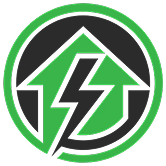
Pure Sine Wave vs. Modified Sine Wave Inverters: Which Do You Need?
Introduction
If you’re running a solar system, off-grid setup, or backup power station, you’ll need an inverter to convert DC electricity from your batteries or panels into usable AC power for your appliances. But which type of inverter is right for you — pure sine wave or modified sine wave?
At Build The Power, our Power Inverters Collection features both types, so you can choose the perfect match for your needs.
What is a Pure Sine Wave Inverter?
A pure sine wave inverter produces electricity that closely mimics the smooth, consistent waveform of grid power. This makes it ideal for sensitive electronics and appliances.
Best For:
-
Laptops, TVs, and medical devices
-
High-end appliances like fridges and microwaves
-
Homes and offices needing clean, reliable power
Explore our Pure Sine Wave Inverters for top-quality options.
What is a Modified Sine Wave Inverter?
A modified sine wave inverter creates a stepped approximation of a sine wave. It’s less expensive but produces “rougher” power.
Best For:
-
Basic tools, lights, and resistive loads
-
Budget-friendly or occasional use
-
Simple setups without sensitive electronics
See our Modified Sine Wave Inverters for cost-effective models.
Comparison Table
| Feature | Pure Sine Wave Inverter | Modified Sine Wave Inverter |
|---|---|---|
| Power Quality | Smooth, clean, like grid power | Rougher, stepped waveform |
| Appliance Compatibility | Works with all electronics | May damage or reduce efficiency of sensitive devices |
| Cost | Higher upfront price | More affordable |
| Efficiency | More efficient with complex loads | Less efficient with inductive loads |
| Noise | Quiet operation | Can cause humming or heat in some devices |
Pros & Cons
Pure Sine Wave Inverters
Pros:
-
Safe for all electronics
-
More efficient, cooler operation
-
Reliable and stable
Cons:
-
Higher upfront cost
Modified Sine Wave Inverters
Pros:
-
Lower price
-
Works for simple loads
Cons:
-
Not suitable for sensitive electronics
-
Lower efficiency and potential noise
Which Should You Choose?
-
If You Use Sensitive Electronics: Go with a Pure Sine Wave Inverter.
-
If You’re Powering Basic Loads on a Budget: A Modified Sine Wave Inverter may be enough.
-
If Unsure: Opt for pure sine wave to cover all bases.
Conclusion & Call to Action
Choosing the right inverter is crucial for the safety and performance of your system. Whether you’re running a small off-grid cabin or a full home backup system, Build The Power has the inverter you need.
👉 Explore now: Shop Power Inverters at Build The Power.

